第18章 V(1)
The King had prayed that he might live till his niece was of age; and a few days before her eighteenth birthday--the date of her legal majority--a sudden attack of illness very nearly carried him off. He recovered, however, and the Princess was able to go through her birthday festivities--a state ball and a drawing-room--with unperturbed enjoyment. "Count Zichy," she noted in her diary, "is very good-looking in uniform, but not in plain clothes. Count Waldstein looks remarkably well in his pretty Hungarian uniform." With the latter young gentleman she wished to dance, but there was an insurmountable difficulty. "He could not dance quadrilles, and, as in my station I unfortunately cannot valse and gallop, I could not dance with him." Her birthday present from the King was of a pleasing nature, but it led to a painful domestic scene. In spite of the anger of her Belgian uncle, she had remained upon good terms with her English one. He had always been very kind to her, and the fact that he had quarrelled with her mother did not appear to be a reason for disliking him. He was, she said, "odd, very odd and singular," but "his intentions were often ill interpreted." He now wrote her a letter, offering her an allowance of L10,000 a year, which he proposed should be at her own disposal, and independent of her mother. Lord Conyngham, the Lord Chamberlain, was instructed to deliver the letter into the Princess's own hands. When he arrived at Kensington, he was ushered into the presence of the Duchess and the Princess, and, when he produced the letter, the Duchess put out her hand to take it. Lord Conyngham begged her Royal Highness's pardon, and repeated the King's commands. Thereupon the Duchess drew back, and the Princess took the letter. She immediately wrote to her uncle, accepting his kind proposal. The Duchess was much displeased; L4000 a year, she said, would be quite enough for Victoria; as for the remaining L6000, it would be only proper that she should have that herself.
King William had thrown off his illness, and returned to his normal life. Once more the royal circle at Windsor--their Majesties, the elder Princesses, and some unfortunate Ambassadress or Minister's wife--might be seen ranged for hours round a mahogany table, while the Queen netted a purse, and the King slept, occasionally waking from his slumbers to observe "Exactly so, ma'am, exactly so!" But this recovery was of short duration. The old man suddenly collapsed; with no specific symptoms besides an extreme weakness, he yet showed no power of rallying; and it was clear to everyone that his death was now close at hand.
All eyes, all thoughts, turned towards the Princess Victoria; but she still remained, shut away in the seclusion of Kensington, a small, unknown figure, lost in the large shadow of her mother's domination. The preceding year had in fact been an important one in her development. The soft tendrils of her mind had for the first time begun to stretch out towards unchildish things. In this King Leopold encouraged her. After his return to Brussels, he had resumed his correspondance in a more serious strain; he discussed the details of foreign politics; he laid down the duties of kingship; he pointed out the iniquitous foolishness of the newspaper press. On the latter subject, indeed, he wrote with some asperity. "If all the editors," he said, "of the papers in the countries where the liberty of the press exists were to be assembled, we should have a crew to which you would NOT confide a dog that you would value, still less your honour and reputation." On the functions of a monarch, his views were unexceptionable. "The business of the highest in a State," he wrote, "is certainly, in my opinion, to act with great impartiality and a spirit of justice for the good of all." At the same time the Princess's tastes were opening out. Though she was still passionately devoted to riding and dancing, she now began to have a genuine love of music as well, and to drink in the roulades and arias of the Italian opera with high enthusiasm. She even enjoyed reading poetry--at any rate, the poetry of Sir Walter Scott.